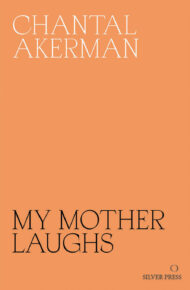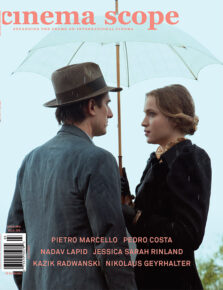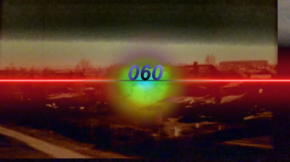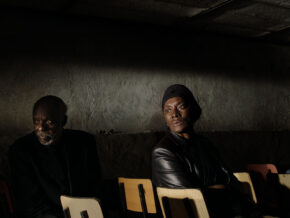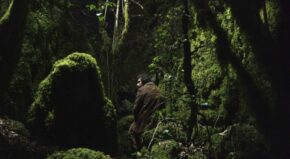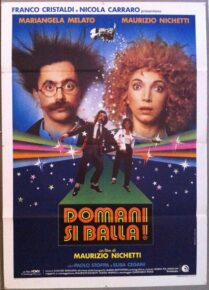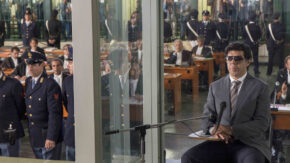CS80
Silence and Presence: Chantal Akerman’s My Mother Laughs
By Phoebe Chen | 09/25/2019 | Books, Columns, CS80, From Cinema Scope Magazine
By Phoebe Chen For certain filmmakers—attractive women—there is a popular kind of on-set photo that telegraphs authority: one eye pressed to the viewfinder of some behemoth camera, she is caught in a contra-glamour shot that codes the pragmatic as cool. Naturally, there is one of Chantal Akerman, taken some time in the late ’70s—shaggy-haired and…
Read More → Cinema Scope 80 Table of Contents
By Cinema Scope | 09/24/2019 | CS80, From Cinema Scope Magazine, Table of Contents
Interviews No God But the Unknown Pietro Marcello and Maurizio Braucci on Martin Eden by Jordan Cronk I See a Darkness: Pedro Costa on Vitalina Varela by Haden Guest and Mark Peranson Naked in Paris: Nadav Lapid on Synonyms by Robert Koehler Features Natural Wonders: The Films of Jessica Sarah Rinland by Darren Hughes Woman…
Read More → No God But the Unknown: Pietro Marcello and Maurizio Braucci on Martin Eden
By Jordan Cronk | 09/24/2019 | CS80, From Cinema Scope Magazine, Interviews
By Jordan Cronk “Of course it was beautiful; but there was something more than beauty in it, something more stingingly splendid which had made beauty its handmaiden.”—Jack London, Martin Eden Pietro Marcello’s decade-long evolution from idiosyncratic film essayist to grand narrative storyteller represents one of the most significant artistic flowerings in contemporary cinema. Recently unveiled…
Read More → I See a Darkness: Pedro Costa on Vitalina Varela
By Haden Guest | 09/24/2019 | CS80, From Cinema Scope Magazine, Interviews
A moving study of mourning and memory, Pedro Costa’s revelatory new film offers an indelible portrait of Vitalina Taveres Varela, a fragile yet indomitable woman who makes the long voyage from Cape Verde to Lisbon to attend her estranged husband’s funeral, but misses the event itself because of cruel bureaucratic delays.
Read More → Woman on the Verge of a Nervous Breakdown: Kazik Radwanski’s Anne at 13,000 ft
By Josh Cabrita | 09/23/2019 | CS80, Features, From Cinema Scope Magazine
The prospect of spending an hour and a half with people lacking in notable virtue, alluring vice, or any apparent interest, may seem like an unproductive exercise in forced empathy—but consider this skepticism a function, as opposed to a fault, of these tightly orchestrated, seemingly soporific character studies.
Read More → For a Cinema of Bombardment
By Michael Sicinski | 09/23/2019 | CS80, Features, From Cinema Scope Magazine
Although there have always been intrepid critics and cinephiles who have engaged with films belonging to the non-narrative avant-garde, there has existed a perception that such films, operating as they do on somewhat different aesthetic precepts, could be considered a separate cinematic realm, one that even the most dutiful critic could engage with or not, as he or she saw fit.
Read More → Together We’re Willing to Take Any Risk: The Films of Han Ok-hee and Kaidu Club
By Jesse Cumming | 09/23/2019 | CS80, Features, From Cinema Scope Magazine
In 1974, a group of students from the prestigious Ewha Womans University in Seoul formed South Korea’s first feminist film collective, Kaidu Club. Shepherded by the group’s de-facto president Han Ok-hee, the other members—who participated with varying degrees of involvement over the Club’s five years of existence—also included the painter Kim Jeom-seon, as well as academics and artists Lee Jeong-hee, Han Soon-ae, Jeong Myo-sook, and Wang Gyu-won. As the “Club” designation might suggest, the group was committed to both the promotion and production of experimental cinema, which was still in its domestic infancy.
Read More → Cinema Scope 80: Editor’s Note
By Mark Peranson | 09/23/2019 | Columns, CS80, Currency, Festivals
Having been in Locarno at the premiere of Vitalina Varela, I can testify that every single one of the 3,000 people who remained in the Fevi for the duration of the film were overwhelmed by the power Costa’s vision, and leapt to their collective feet in standing ovation as the credits rolled. That’s just as believable a scenario as, say, a cadre of radical critics and programmers imposing their beliefs on a bunch of uneducated suckers by sheer will, which is essentially what the Variety argument implies—a bunch of suckers, mind you, that includes a jury of rather experienced filmmakers, watchers, and actors, all of whom as far as I can tell are sentient beings with brain stems unconnected to the cinephile Matrix.
Read More → And That’s Exactly How it Was: The 72nd Locarno Film Festival
By James Lattimer | 09/23/2019 | Columns, CS80, Festivals, From Cinema Scope Magazine, Spotlight
The 72nd edition of the Locarno Film Festival—the first under the artistic direction of Lili Hinstin—was notable for the strength of its documentary offerings, albeit hardly in the conventional sense. Within a solid line-up whose names and general tone didn’t deviate all that much from recent years, the films that stood out most were the ones that tapped into the realm of nonfiction—which isn’t to say they were necessarily documentaries.
Read More → Golden Eighties: J. Hoberman’s Make My Day: Movie Culture in the Age of Reagan
By Adam Nayman | 09/23/2019 | Books, Columns, CS80, From Cinema Scope Magazine
The news cycle waits for no one, not even J. Hoberman. Opening up the former Village Voice critic’s new book Make My Day—the conclusion, following The Dream Life and An Army of Phantoms, of his “Found Illusions” trilogy, which traces the intersection of Hollywood fantasies and American political reality in the transformative decades after World War II—on the same day that The Atlantic published an article detailing Ronald Reagan’s appalling comments to Richard Nixon about the members of a Tanzanian delegation to the United Nations in 1971, I couldn’t help but lament the anecdote’s lack of inclusion in Hoberman’s otherwise comprehensively withering mock-hagiography of the 40th Commander in Chief.
Read More → Global Discoveries on DVD: Compulsively Yours (including a few real-life confessions/admissions)
By Jonathan Rosenbaum | 09/23/2019 | Columns, CS80, DVD Reviews, From Cinema Scope Magazine
Due to my recorded enthusiasm for Maurizio Nichetti’s first slapstick feature, Ratataplan (1979), and his no less loony and hilarious fifth, The Icicle Thief (1989), I was handed a restoration of his equally loony but less hilarious third, Domani si balla! (Tomorrow We Dance, 1983), co-starring Nichetti and Mariangela Melato, on a PAL DVD with optional English subtitles (not always idiomatic or grammatical) released by Collana Forum Italia.
Read More → Exploded View: Peter Fonda’s Idaho Transfer
By Chuck Stephens | 09/23/2019 | CS80, Exploded View, From Cinema Scope Magazine
“A useless piece of drivel about an obnoxious group of teens who get ‘teleported’ into the future, where they are expected to set up a new civilization in Idaho.”
Read More → Fire Will Come (Oliver Laxe, Spain/France/Luxembourg)
By Azadeh Jafari | 09/23/2019 | CS80, Currency, From Cinema Scope Magazine
By Azadeh Jafari After two films set in Morocco—You Are All Captains (2010) and the Cannes Critics Week winner Mimosas (2016)—French-born Spanish filmmaker Oliver Laxe returns to his parents’ homeland of Galicia for his third feature, Fire Will Come, which the director has called a “dry melodrama.” The narrative is certainly simple enough: a middle-aged…
Read More → The Traitor (Marco Bellocchio, Italy/France/Brazil/Germany)
By Celluloid Liberation Front | 09/23/2019 | CS80, Currency, From Cinema Scope Magazine
“The most beautiful film is our own history,” confessed Marco Bellocchio to a journalist following the release of The Traitor, after it surpassed Godzilla: King of the Monsters at the Italian box office, proving yet again that the Mafia movieis still a commodity worth investing in.
Read More → 
